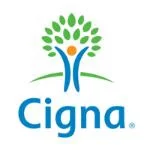An expat’s introduction to Italian healthcare
Bravo on taking the plunge and deciding to move to Italy! With its romantic landscapes, world-renowned cuisine, and more than two millennia of culture, you have a real adventure ahead of you.

Something that shouldn’t be an adventure is figuring out the Italian healthcare system. You have enough on your plate (and we don’t mean spaghetti) without worrying what to do if that frutti di mare tasted off.
Luckily, Italy has one of the best healthcare systems in the world so if the unexpected does happen you’re in good hands.
You’ll be pleased to hear that the country has a regionally organised National Health Service (SSN Servizio Sanitario Nazionale) that provides citizens with free or low-cost healthcare. It’s funded through national income taxes and regional VAT, and generally the standard of care is very high.
And the buone notizie is that foreign citizens living in Italy with a regular stay permit are entitled to all the same treatment and rights as Italian citizens.
But first, you will have to register with the SSN in your district of residence. Just head along to your local health authority (ASL Azienda Sanitaria Locale) with a valid ID document, your tax code, a letter from your employer detailing your employment start date and INPS declaration, and your residence permit.
Once you’re registered, you’ll be issued with a national health number and a health card, which you will have to show when you visit your doctor or another healthcare provider.
Although public healthcare is free, many expats prefer to take out private healthcare insurance like the packages offered by Cigna Global. Knowing that you can avoid the queues for public healthcare, freely choose your own private doctor or specialist, and receive treatment at private hospitals, can give you peace of mind throughout the relocation.
Find out more about Cigna Global international health insurance
Finding a doctor
There are many medici (doctors) in Italy, the only obstacle you may come up against is finding one who speaks English in certain regions.
A good place to start is by calling your embassy or checking on their website, often they maintain a list of English-speaking doctors and specialists. General practitioners can also be found by looking under Medici Generici in the yellow pages.
It’s up to you to decide on the doctor you wish to register with. Often family doctors practice in group surgeries, known in Italian as poliambulatori, and offer a range of treatments including minor surgeries, gynaecology, and psychotherapy.
Surgery hours vary but most practices are open from Monday to Friday. Appointments are on a first-come, first-served basis, so there’s no need to call ahead and make an appointment, just make sure to take along your health card. The doctor should be your first port of call if you think you require a ricetta (prescription) or impegnativa (referral) to a specialist.
Emergency care
Healthcare in Italy is seen as a right, and emergency care is available without charge to everyone regardless of whether or not they have state health insurance. If you need urgent medical care you should visit the pronto soccorso (emergency room) at your nearest ospedale (hospital). It’s open around the clock all year round.
Note that you will be seen based on the severity of your symptoms, so if the reception staff don’t consider your condition urgent then you may end up waiting several hours.
If you’re unable to get to the emergency room yourself, then you should dial 118 and ask for an ambulance (ambulanza). The telephone emergency service is available 24/24 hours, and should only be used in case of an emergency requiring immediate intervention.
Specialist care
The SSN provides access to specialist care which is delivered through public hospitals. Unless you have an exemption, you will have to co-pay a small fee for specialist examinations.
GPs have a gatekeeping role and are responsible for referring you to a specialist, so they should be your first port of call if you think you need a specialist examination. Once you’ve seen your GP, you can make an appointment by showing your referral and healthcare card at the reception of the hospital or clinic where you wish to have an examination.
Pharmacies
For both over-the-counter and prescription medication you should visit your nearest farmacia (pharmacy), easily recognised by the large green cross sign. They are generally open from 8.30am to 7.30pm with a long lunch break -- often up to three hours. Each town has an emergency chemist, some of which are open 24 hours a day.
Medicines considered “life-savers” may be free, or you may be required to pay a small co-payment. If you are registered with the SSN, you need to make a co-payment for prescription medicines like antibiotics, insulin, hormone treatments, and anti-inflammatory drugs. Your local ASL can advise you on the regional cost of co-payments for prescription medicine.
You always have to pay full price for over-the-counter medicines like paracetamol and vitamins.
Insurance
The SSN is a wonderful benefit of living in Italy, although as an expat you might feel more confident about the relocation if you take out private insurance coverage.
Knowing that you and your family are protected and can get speedy and affordable access to private healthcare can make you feel more secure in a new country. This is especially true if you don’t speak the language, as a private healthcare provider can also ensure you can quickly find the nearest English-speaking doctor or specialist.
Cigna Global offers healthcare packages that have been created specifically for expats. Find the option that suits your situation, and let Cigna take care of your health so you can enjoy the finer parts of Italian life.
Click here to get a free quote from Cigna Global
This content was paid for by an advertiser and produced by The Local's Creative Studio.

Join the conversation in our comments section below. Share your own views and experience and if you have a question or suggestion for our journalists then email us at [email protected].
Please keep comments civil, constructive and on topic – and make sure to read our terms of use before getting involved.
Please log in here to leave a comment.